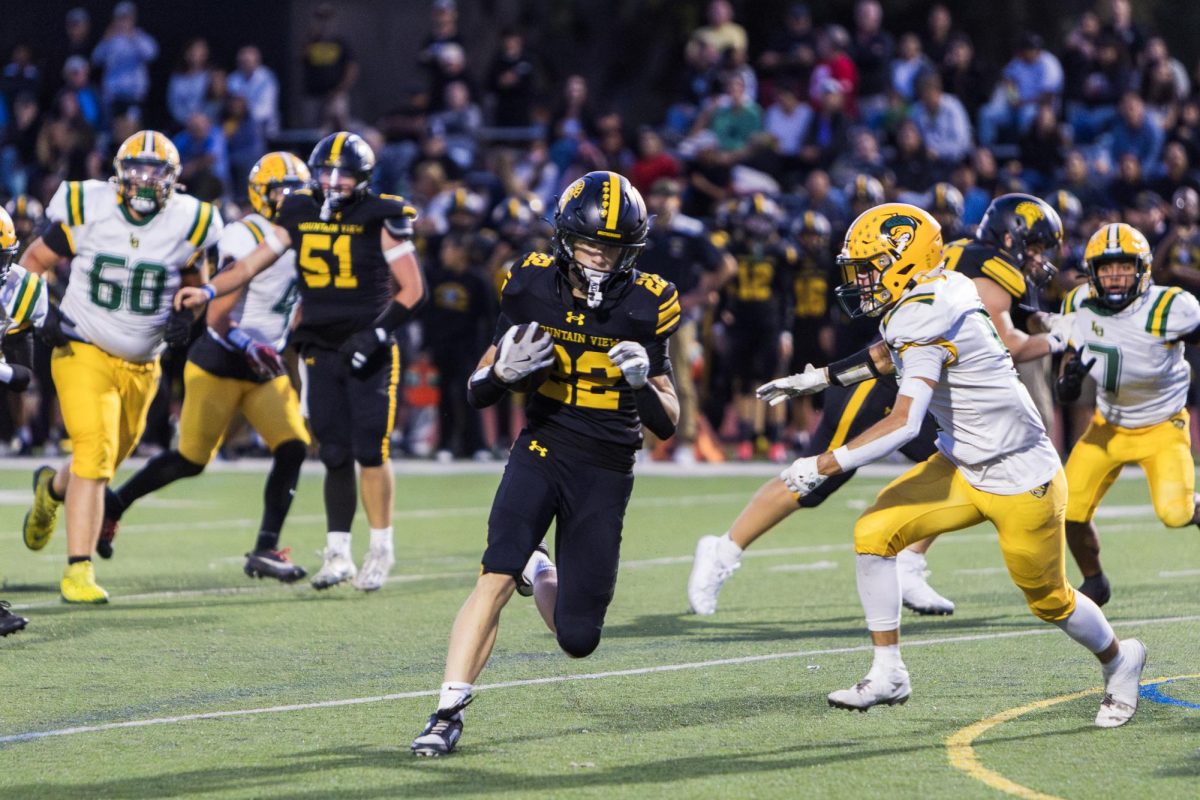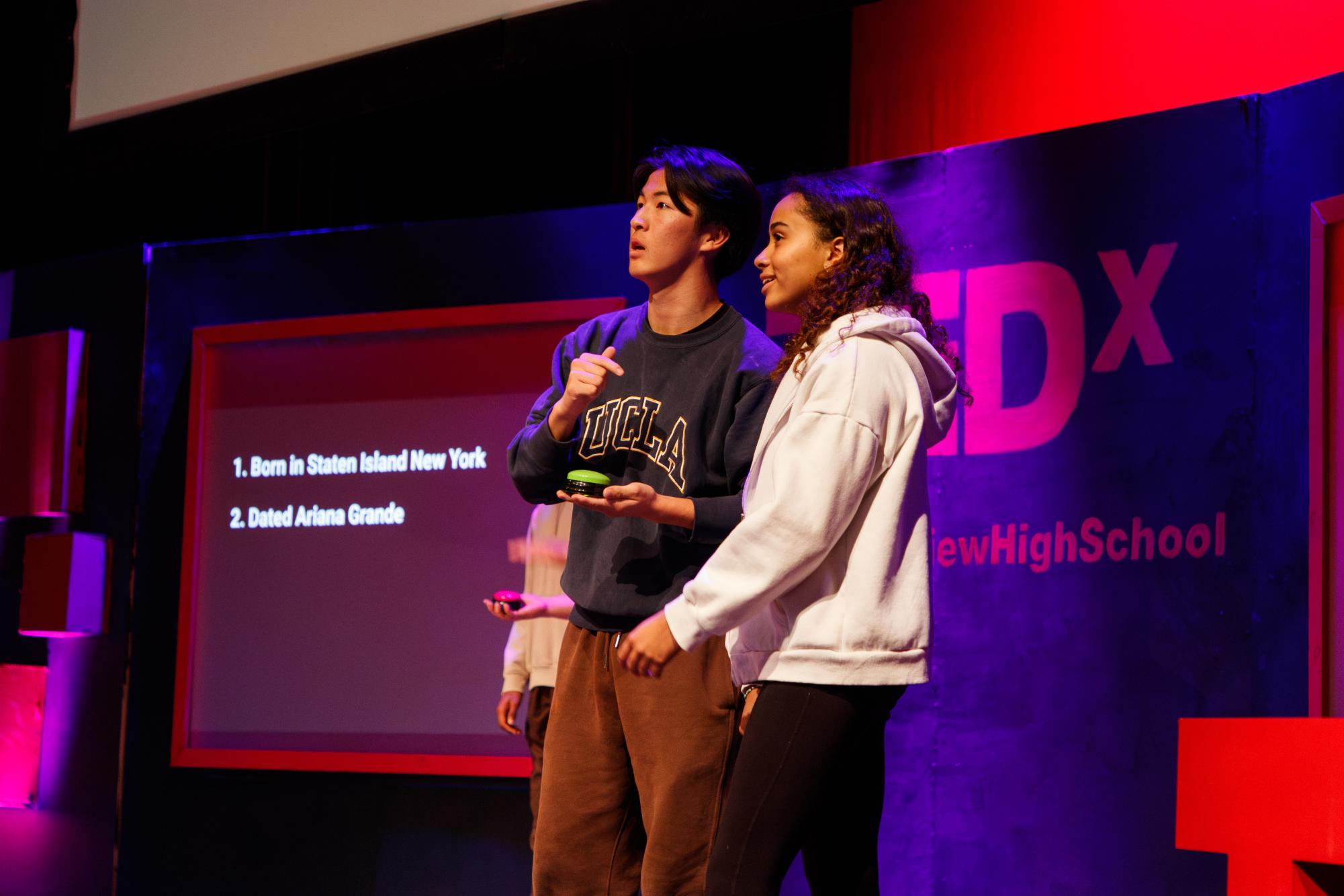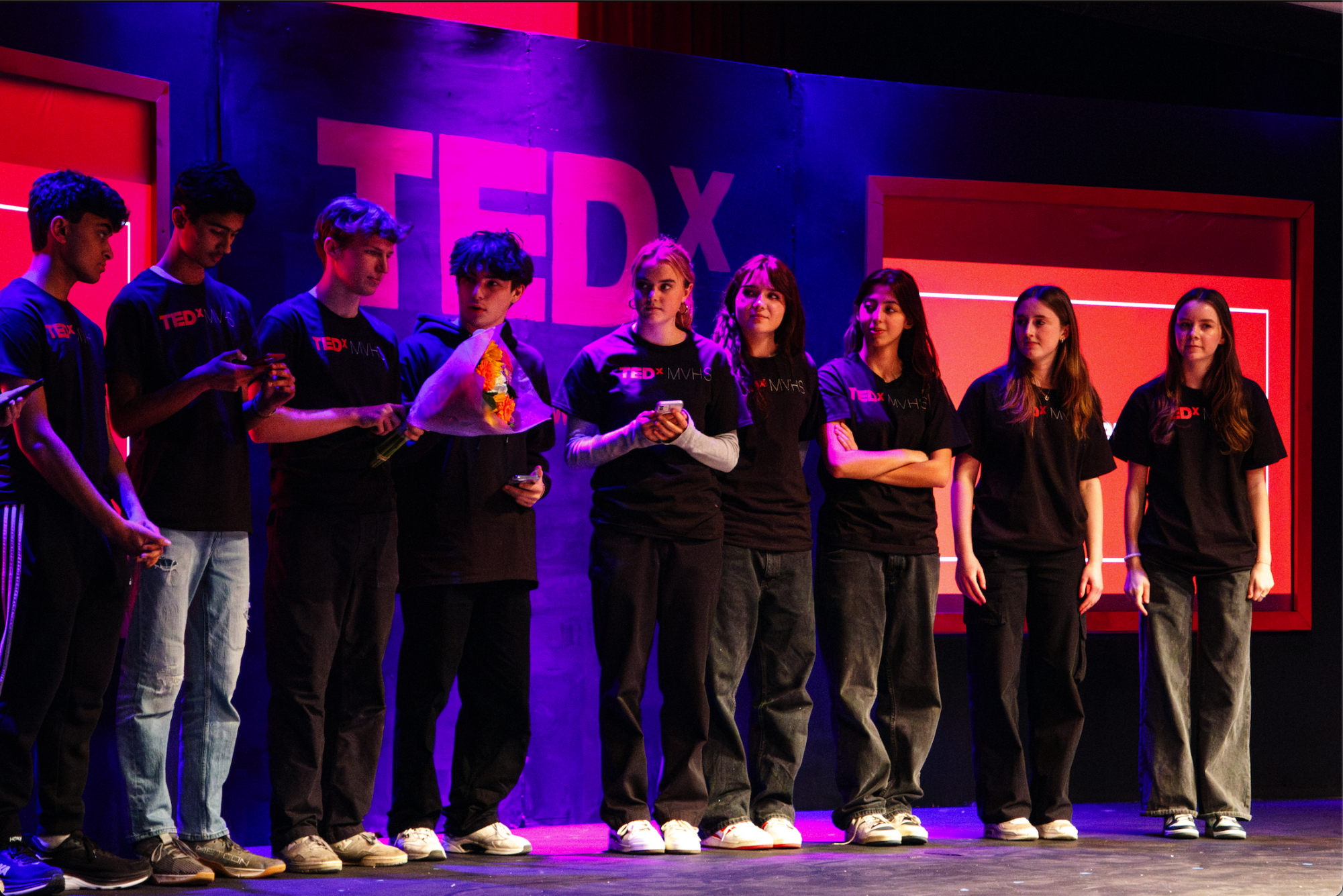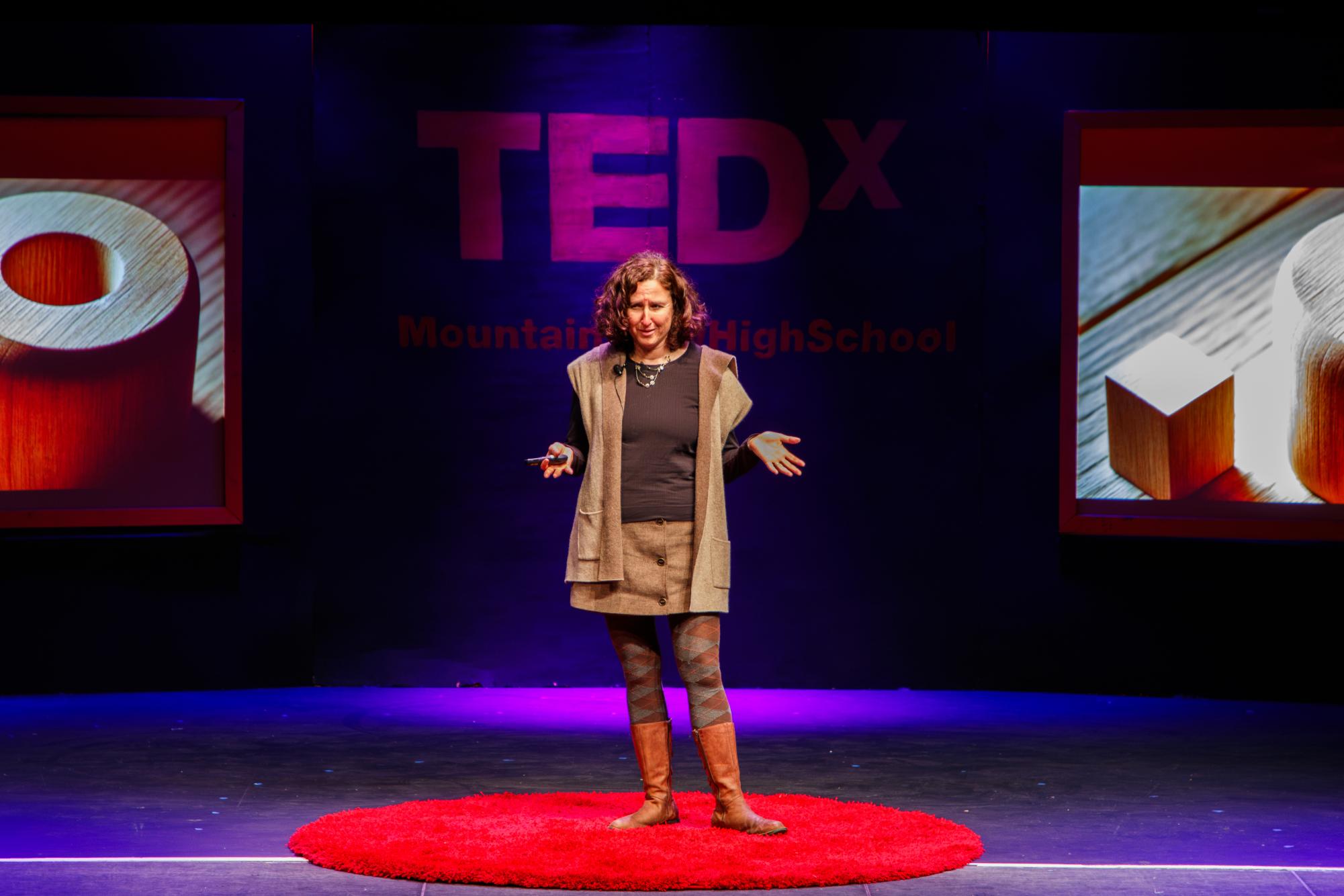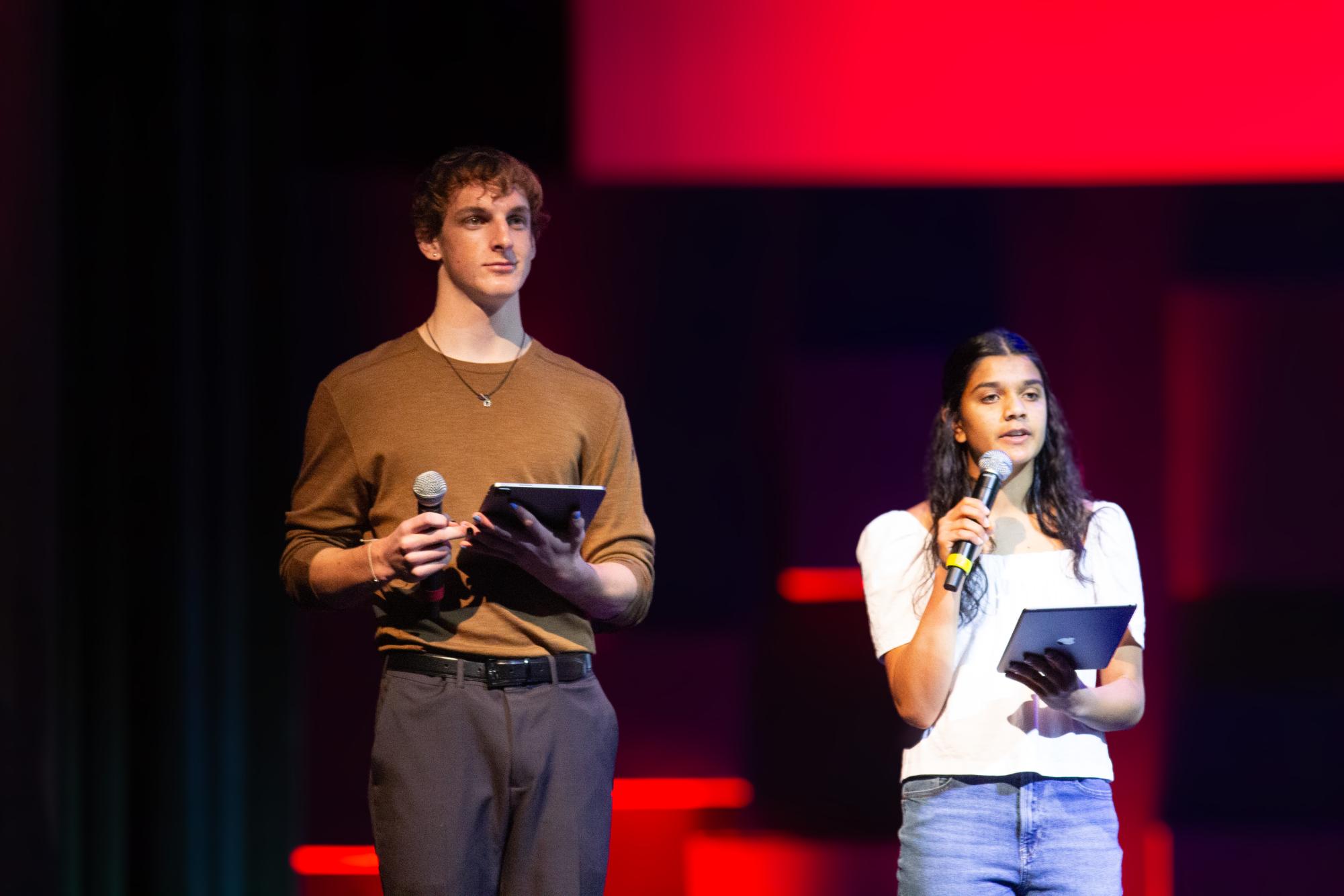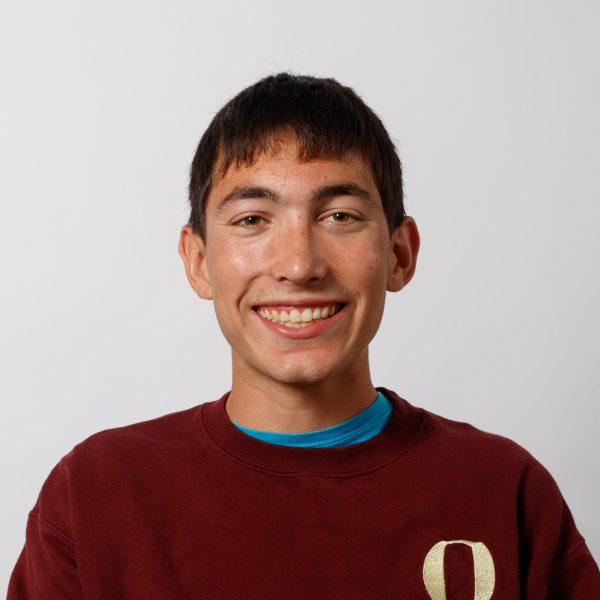On Jan. 12, students gathered in the theater to experience the TEDx event, featuring a mix of speakers, audience participation through games, and videos played on the projector.
The event featured seven students, including freshman Natalie Chen, sophomore Eleanor Shin, sophomore Landon Qizilbash, freshman Elsa Sapojnikoff, senior Radhika Kamran, junior Rohan Melwani, and junior Calista Woo.
“The most important issues [come] from a student perspective, and I think other students are more responsive to the information coming from another student,” Melwani said.
The event also featured three adults: Chie Tamada, Leonard Speiser, and Julie Stanford. The show was led by Co-Executive Producers and seniors Thalia Crawford and Paige Wardell, who facilitated a team of over 15 MVHS students to successfully run the annual TEDx event.
Among the topics presented included lifestyle choices, ghosting over text, parenting, and use of nuclear power.
In previous years, students were able to opt in to attend TEDx, therefore missing certain classes in order to go to individual events. However this year, students did not have that option. Rather teachers could sign their whole class up, taking time out of their class period to give students the opportunity to watch the shows.
This change to the event is due to the California Education Code, along with administration changes, Wardell said.
“That was a much better way of producing the events,” Wardell said. “It allows a lot more students to see the talks and experience it firsthand, which I think is a huge positive.”
However, it did create some challenges, such as having to reintroduce the show each period, and not being able to fit as much content compared to the previous system that allowed students to choose if they wanted to go to the event, which was split into halves, Melwani said.
Long before the event itself, the process began with auditions on Sept. 11. Melwani said he created an outline for his TEDx talk, which was about Nuclear Energy, and received an email of acceptance a week or two later.
“From there, I was paired with a speaker coach, and my mentor was Preston, who was a speaker the previous year,” Melwani said. “I had to write the first draft of my talk, and then it was a lot of rounds of revision.”
Melwani said that a large aspect of the revisions was making sure that he delivered his point in the limited time frame of 10-12 minutes, which was accompanied by minor revisions like flow and grammar. He said that he also prepared by watching TED talks online to study presenters’ body language and speaking style, and that he was inspired by his brother’s performance, as well as his speaker coach’s.
According to Wardell, the TEDx Club works in teams to split up tasks such as fundraising and keeping track of expenses.
“Once we reach our goal, which is the event, TEDx really dies off in the second part of the year,” Wardell said. “It’s also a good time to reflect, and we spend our time working with the actual TedX company.”
Wardell said she has spent her time as co-executive producer helping speakers create their speeches and stage performances, as well as coordinating with all of the members of the TEDx production team.
“It was really fulfilling being able to spread my ideas and share the work that [I] worked so hard on,” Melwani said.
Melwani said he encourages people at home to not be afraid of putting themselves out there.
“Honestly, the hardest part of it was just deciding to sign up and getting over that fear, but it was ultimately such a great experience,” Melwani said.









